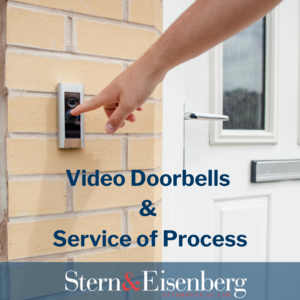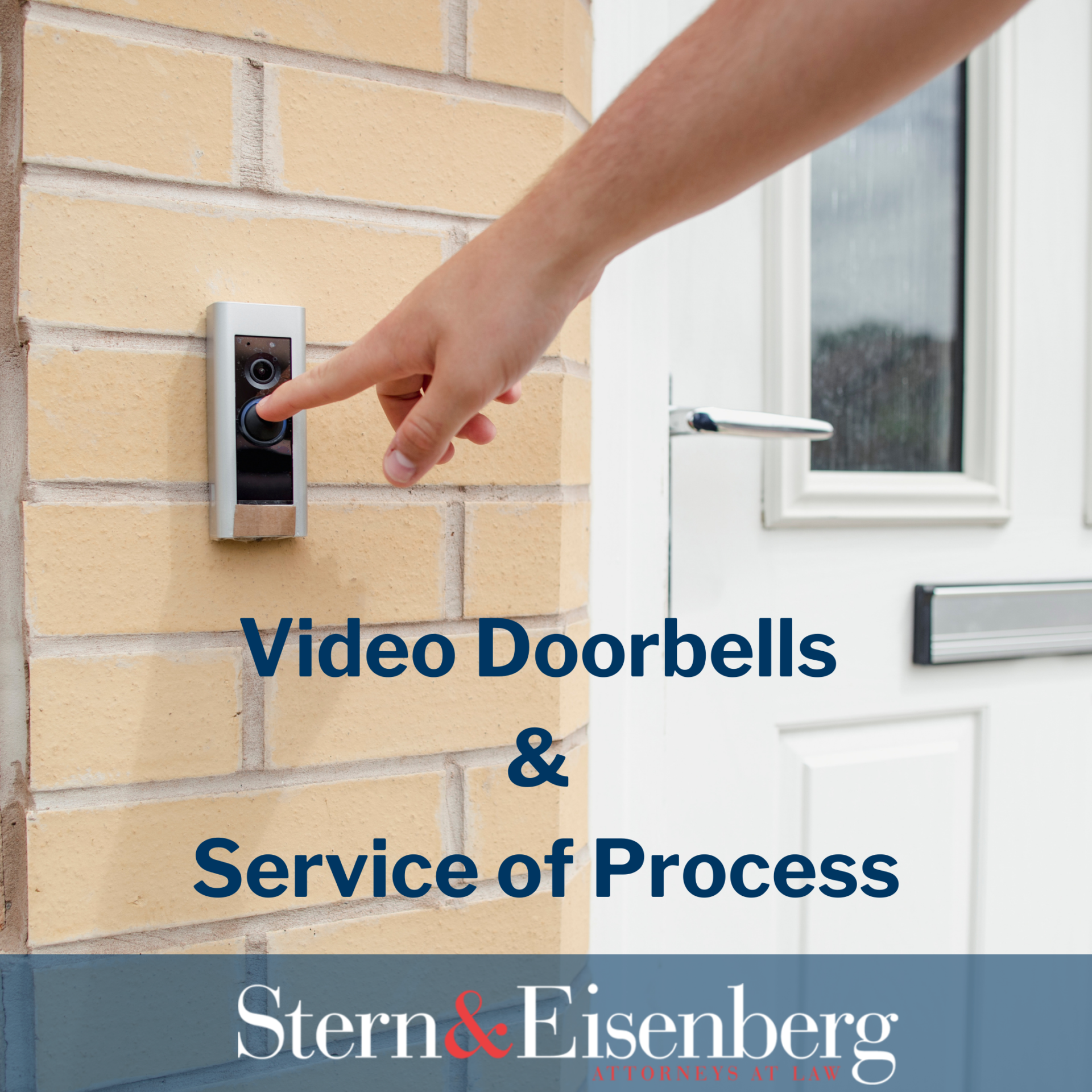By: Catherine Di Lorenzo, Esquire
October 1, 2021

You have to love technology. In some ways, it has enhanced our lives tremendously. However, in some ways, advancements in technology have proven to be problematic for process servers. Video home surveillance has been around for decades, but with the changes and improvements to technology, video surveillance can be integrated right into a homeowner’s doorbell and send the video right to the subscriber’s phone — even if they aren’t home.
Service of process is not an easy job. Many individuals do not understand why they are being served, the role of a process server, or the fact that being served is their constitutional right. For those who do not want to receive service of process, whether they want to try and sabotage the case by saying they were not properly served or if they are avoiding the situation entirely, video doorbells can be problematic because it gives the person who will be served a heads up. The advance notice eliminates the element of surprise that sometimes is necessary in getting a difficult defendant served. Whether the person decides to hide in the house and not answer the door or they evade service by leaving out a back door when the server arrives, video surveillance doorbells make process service more difficult, and especially so on tough serves.
Generally, Delaware allows service to be completed personally on the Defendant or through a substitute party who is over 18 and lives in the home. In a foreclosure case service can also be effectuated by posting the complaint at the property address only after an attempt at personal service has been made.
Most video doorbells allow for communication between the process server and the person to be served. If the person verbally accepts service, you will not be able to prove that the individual accepting service is the Defendant or a resident of the home who is over 18. Unfortunately, video doorbells open up process servers to a number of liabilities with regard to effectuating proper service. Attorneys risk their cases being dismissed if they rely on service in this manner. While service can be completed in a foreclosure case by posting it will force lenders to incur even more costs related to the defaulted mortgage.
How video surveillance doorbells will continue to affect the civil process service industry, legislatively or otherwise, remains to be seen. While there may be some benefits to doorbells like Ring for homeowners, they certainly present some unique challenges for process servers, attorneys, and plaintiffs in general.
